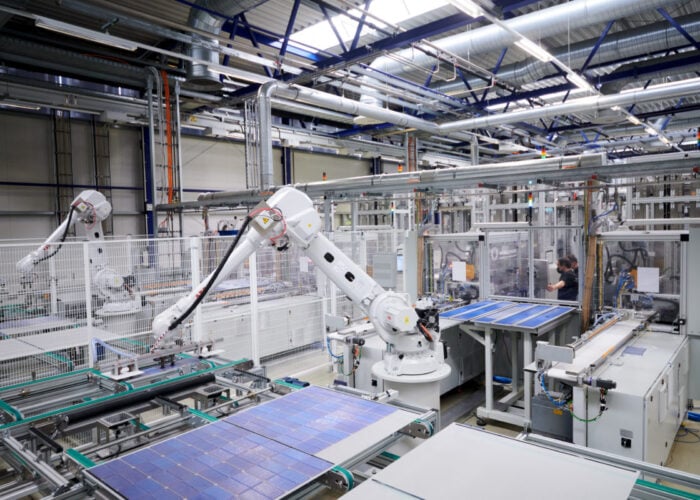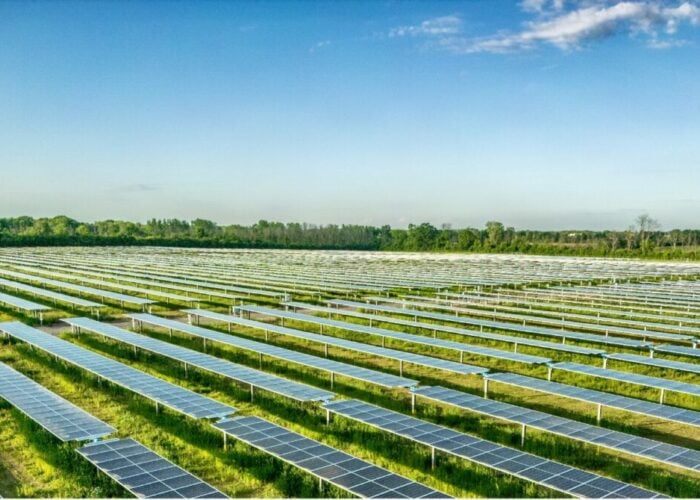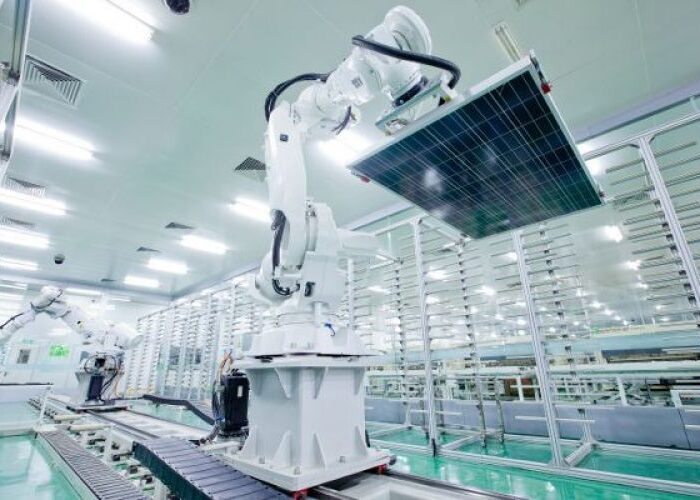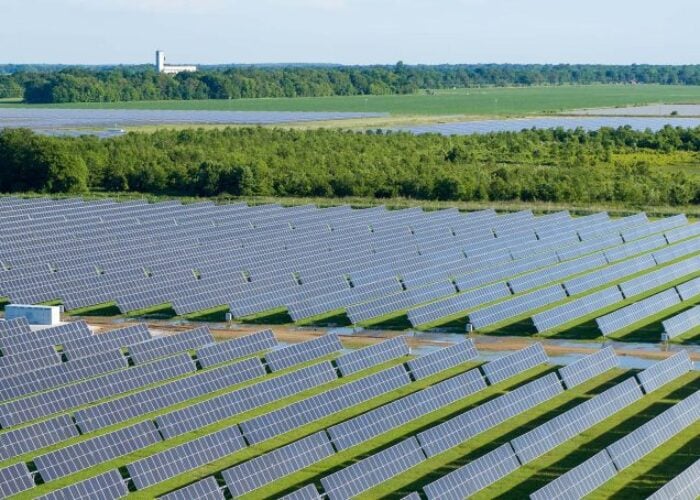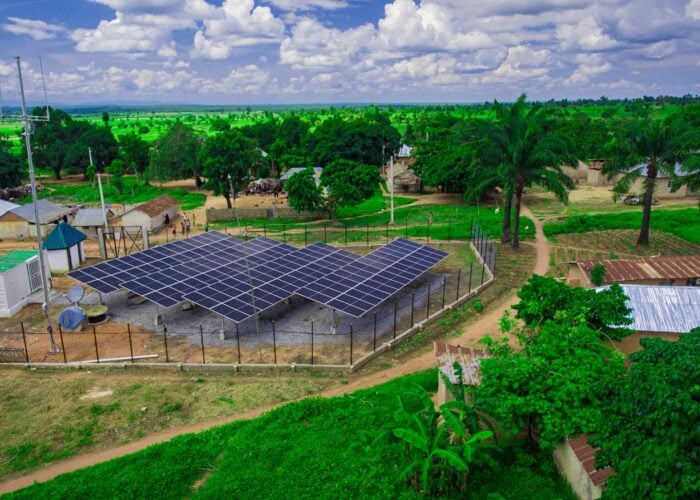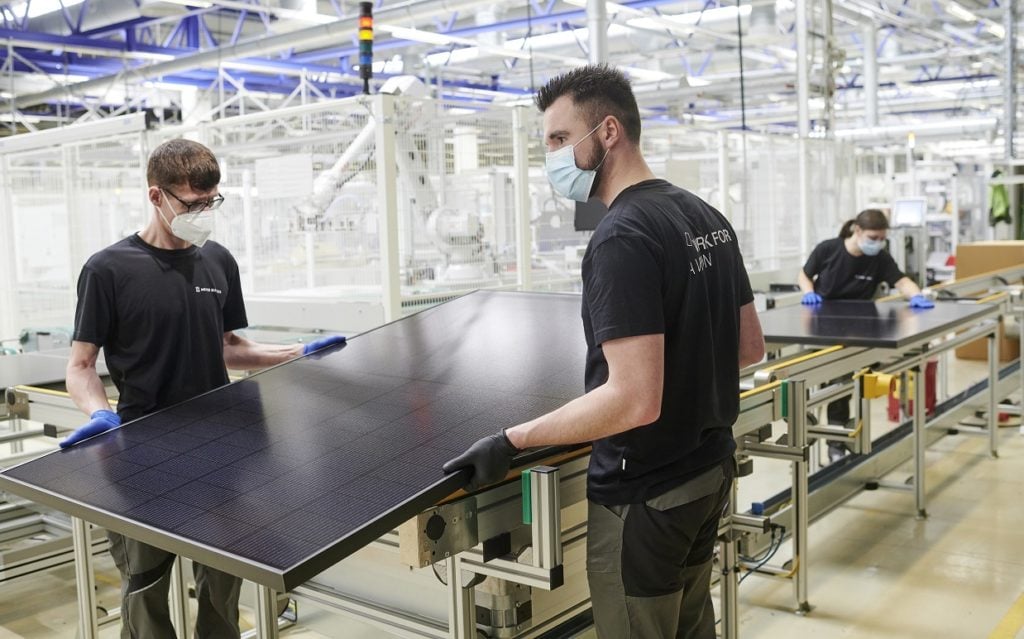
Meyer Burger is sold out of its heterojunction solar modules until the fourth quarter of 2021 as the company continues to be affected by production ramp-up delays.
Having started shipping its first modules at the end of July and receiving orders from customers across Europe and the US, Meyer Burger said it is already completely sold out until far into Q4.
Unlock unlimited access for 12 whole months of distinctive global analysis
Photovoltaics International is now included.
- Regular insight and analysis of the industry’s biggest developments
- In-depth interviews with the industry’s leading figures
- Unlimited digital access to the PV Tech Power journal catalogue
- Unlimited digital access to the Photovoltaics International journal catalogue
- Access to more than 1,000 technical papers
- Discounts on Solar Media’s portfolio of events, in-person and virtual
Or continue reading this article for free
Reporting its first half results today, the Switzerland-headquartered firm said its performance reflects the realignment of its business model that has seen it transform from a PV equipment supplier to module manufacturer in the last year.
With sales under the old model phasing out and module shipments only starting in H2, Meyer Burger posted first half sales of CHF 18 million (US$19.7 million), down on the CHF 51 million recorded in the same period last year. Due to the decline in sales and additional operating costs, EBITDA was CHF-30.9 million, compared to CHF-25.5 million in H1 2020.
Meyer Burger inaugurated its cell and module factories in Germany in May of this year, with both starting production with annual capacities of 400MW. Having secured financing in recent months to support its expansion, the company said it is on track to reach its target of 1.4GW of both cell and module production capacity by the end of 2022.
As well as helping the company benefit from economies of scale, it is hoped the financing will allow it to use its production equipment capacity in a more uniform manner, helping it to operate more efficiently.
While production at both Germany sites is running around the clock, missing components required for the scheduled ramp-up of the factories have delayed the commissioning of individual parts of the production lines, meaning the firm’s production volume is “currently still limited”, with it expecting to reach full capacity a few weeks later than planned.
Despite supply chain challenges, Meyer Burger said it has secured the supply of critical materials for solar cell and module production with binding agreements. It is currently delivering partial shipments to customers to meet agreed delivery dates as well as possible others.
Meyer Burger now has around 30 customers, including distributors such as BayWa r.e., Krannich Solar, IBC Solar, Sonepar, Memodo in Europe and US distributor CED Greentech.
In addition to an upcoming launch of a solar roof tile, Meyer Burger said it plans to offer modules with its technology customised for the utility-scale solar segment from the second half of 2022.
In the company’s half year report, CEO Gunter Erfurt and chairman Franz Richter said the business is “experiencing strong tailwinds in view of globally scarce availability of photovoltaic modules and sharply rising prices. The downside are also increased material costs, which is why we are paying particular attention to our long-term and strategic procurement.”

